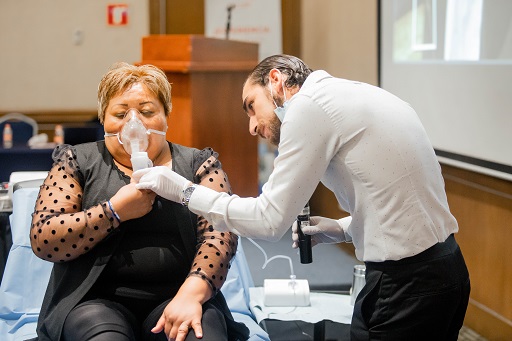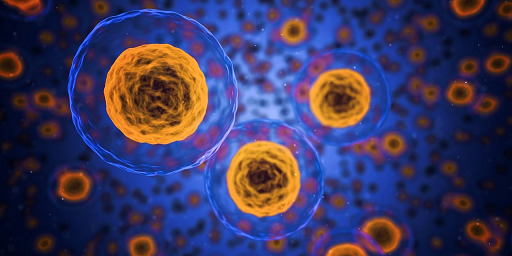Table of Contents
Introduction to Exosome Injections
Are you ready to discover an innovative and revolutionary treatment option that is taking the medical world by storm? Look no further than exosome injections! These tiny, powerful particles are unlocking new possibilities in regenerative medicine and offering hope for patients seeking effective solutions for a variety of health concerns.
In this blog post, we will delve into what exosome injections are, how they work, their benefits, common uses, potential risks, and side effects, as well as explore the exciting future of exosome therapy. So sit back, relax, and let’s dive into the fascinating world of exosomes!
How do Exosomes Work?
Exosomes, tiny extracellular vesicles, play a crucial role in intercellular communication and have gained attention for their potential therapeutic applications. But how exactly do exosomes work?
Exosomes are produced by various cell types within the body and contain a cargo of proteins, lipids, RNA molecules, and other bioactive molecules. These cargo molecules act as messengers that can be delivered to recipient cells.

When released from the parent cell, exosomes travel through bodily fluids such as blood or lymphatic fluid to reach their target cells. They accomplish this by utilizing specific surface markers that allow them to bind to receptors on the recipient cell’s membrane.
Once attached to the target cell’s surface, exosomes can either fuse with the cell membrane or enter through endocytosis. This allows them to deliver their cargo directly into the cytoplasm of the recipient cell.
Upon entering the target cell, these bioactive molecules carried by exosomes can modulate cellular processes like gene expression and protein synthesis. This modulation can affect various functions within cells including immune responses, tissue repair mechanisms, and overall cellular homeostasis.
By harnessing these natural communication pathways between cells using exosomes derived from donor sources or engineered in laboratories, researchers hope to unlock new possibilities for treating a range of diseases and promoting tissue regeneration.
Benefits of Exosome Injections
Exosome injections have gained significant attention in the field of regenerative medicine due to their potential benefits. These tiny extracellular vesicles play a crucial role in cell-to-cell communication and can be harnessed to promote healing and rejuvenation.
One major benefit of exosome injections is their ability to stimulate tissue repair. When injected into damaged or injured areas, exosomes release growth factors and signaling molecules that help initiate the body’s natural healing processes. This can lead to accelerated recovery, reduced pain, and improved function.

Another advantage of exosome therapy is its minimal invasiveness. Unlike surgical procedures or traditional treatments, such as corticosteroid injections, exosome injections are non-surgical and require no incisions or anesthesia. This makes them a less risky option with shorter recovery times.
Exosomes also have immunomodulatory properties, meaning they can regulate the immune system’s responses. By modulating inflammation levels and promoting tissue regeneration, these tiny vesicles may offer relief for individuals dealing with chronic inflammatory conditions like arthritis or autoimmune diseases.
Common Uses for Exosome Injections
Exosome injections have gained popularity in the medical field due to their potential therapeutic benefits. These tiny vesicles, derived from stem cells or other sources, play a crucial role in cell-to-cell communication and can be used in various treatments.
One common use of exosome injections is in regenerative medicine. By delivering these powerful molecules directly into damaged tissues or organs, they can help stimulate the body’s natural healing process. This makes them particularly effective for treating musculoskeletal conditions such as osteoarthritis and tendon injuries.

In addition to regenerative medicine, exosomes are being explored for their anti-inflammatory properties. They have shown promise in reducing inflammation associated with autoimmune diseases like rheumatoid arthritis and multiple sclerosis. By modulating the immune response, exosomes could potentially provide relief and improve the quality of life for patients with these chronic conditions.
Furthermore, exosome therapy is being investigated as a potential treatment for neurological disorders such as Alzheimer’s disease and Parkinson’s disease. The ability of exosomes to transport important biomolecules across the blood-brain barrier offers hope for targeted delivery of therapeutic agents to affected brain cells.
Another exciting area where exosomes are being utilized is aesthetic medicine. They are increasingly used in cosmetic procedures to promote tissue regeneration and rejuvenation. Exosome injections can enhance skin texture, reduce wrinkles, and improve overall skin appearance without invasive surgical procedures.
The Future of Exosome Therapy
Exosome therapy is a rapidly evolving field with promising potential for the future. As researchers continue to delve into the intricacies of exosomes and their role in cellular communication, discoveries are being made that could revolutionize healthcare.
One exciting avenue for the future of exosome therapy lies in regenerative medicine. Exosomes have shown great promise in promoting tissue regeneration and healing. Researchers are exploring ways to harness the power of exosomes to regenerate damaged tissues, such as cartilage or heart muscle.
Another area where exosome therapy holds great potential is in treating neurodegenerative diseases. Studies have suggested that exosomes can cross the blood-brain barrier and deliver therapeutic molecules directly to affected brain cells. This opens up possibilities for targeted treatments for conditions like Alzheimer’s or Parkinson’s disease.
While we are still in the early stages of understanding and harnessing the full potential of exosome therapy, its future looks bright. With continued research and advancements in technology, we may see even more groundbreaking applications emerge that could transform healthcare as we know it.
Exosome Therapy in Mexico
When it comes to medical tourism in Mexico, one name stands out in the field of exosome therapy – Beyond Cell Care Mexico. As a leading clinic specializing in regenerative medicine, they offer cutting-edge treatments using exosomes to help patients from around the world find relief and rejuvenation.
Exosome injections have gained significant attention for their potential to enhance tissue repair and promote healing. These tiny extracellular vesicles derived from stem cells carry vital information that can instruct damaged cells to regenerate and heal themselves. With their unique ability to communicate with neighboring cells, exosomes play a crucial role in modulating inflammation, promoting cell growth, and improving overall cellular function.

At Beyond Cell Care Mexico, patients can expect top-quality care provided by highly skilled physicians who are experts in the field of regenerative medicine. The clinic utilizes state-of-the-art technology and follows rigorous protocols to ensure safe and effective treatment outcomes.
One of the key advantages of seeking exosome therapy at Beyond Cell Care Mexico is their commitment to personalized patient care. Each treatment plan is tailored specifically to meet individual needs, ensuring that every patient receives optimal results based on their unique health condition.
Furthermore, choosing medical tourism in Mexico for your exosome injections offers several additional benefits. First and foremost is cost savings. Compared to many other countries where similar therapies may be offered at much higher prices, receiving treatment at Beyond Cell Care Mexico allows you access to world-class healthcare without breaking the bank.
In addition to affordability, another advantage is convenience. Many international patients choose medical tourism as it provides an opportunity for them not only to receive quality medical care but also to explore a beautiful destination like Guadalajara, Cancun, or Los Cabos during their recovery period.
FAQ – What are Exosome Injections?
How do exosomes work?
Exosomes work by delivering their cargo of proteins, nucleic acids, and other bioactive molecules to target cells or tissues. Once inside the recipient cells, they stimulate cellular processes such as cell proliferation, angiogenesis (formation of new blood vessels), immune modulation, and anti-inflammatory effects.
What are the benefits of exosome injections?
The benefits of exosome injections include enhanced tissue healing and regeneration, reduced inflammation, improved immune response, accelerated recovery from injuries or surgeries, pain relief in chronic conditions like osteoarthritis or tendonitis, and potential anti-aging effects.
What are some common uses for exosome injections?
Exosome injections have diverse applications across different medical specialties. They can be used in orthopedics for joint rejuvenation and cartilage repair; dermatology for skin rejuvenation; aesthetics for hair restoration; cardiology for heart repair; neurology for brain cell regeneration; urology for erectile dysfunction treatment; ophthalmology for retinal diseases…the list goes on!
Are there any risks or side effects associated with exosome therapy?
Generally speaking, since exosomes come from your own body (autologous) or donor sources after careful screening (allogeneic), the risk of adverse reactions is low. However, uncommon side effects may include temporary swelling at the injection site or mild flu-like symptoms which usually resolve quickly.
What are exosome injections?
Exosome injections are a cutting-edge regenerative therapy that harnesses the power of exosomes, tiny extracellular vesicles derived from stem cells. These exosomes contain multiple growth factors and signaling molecules that can promote tissue repair and regeneration.
